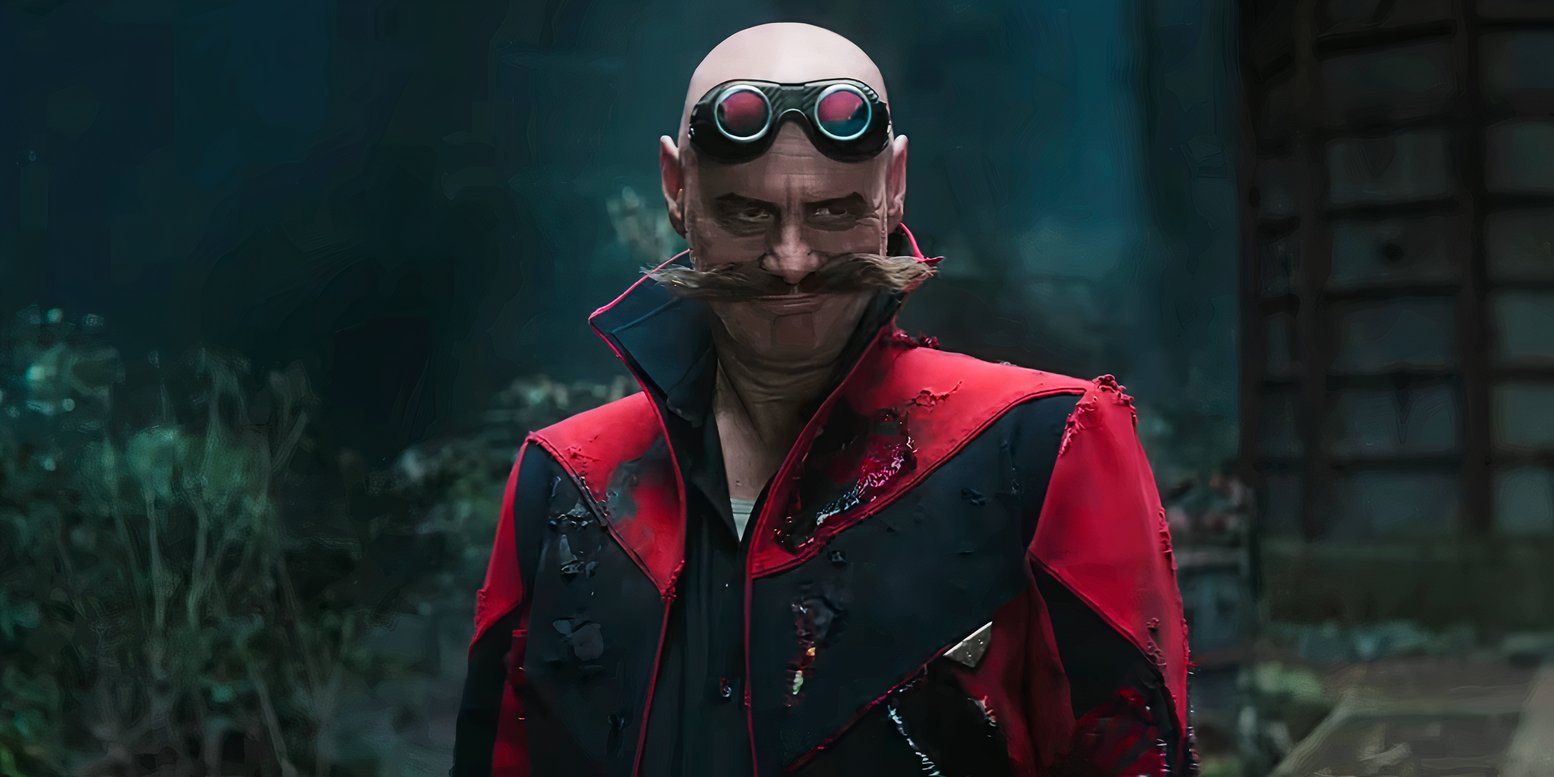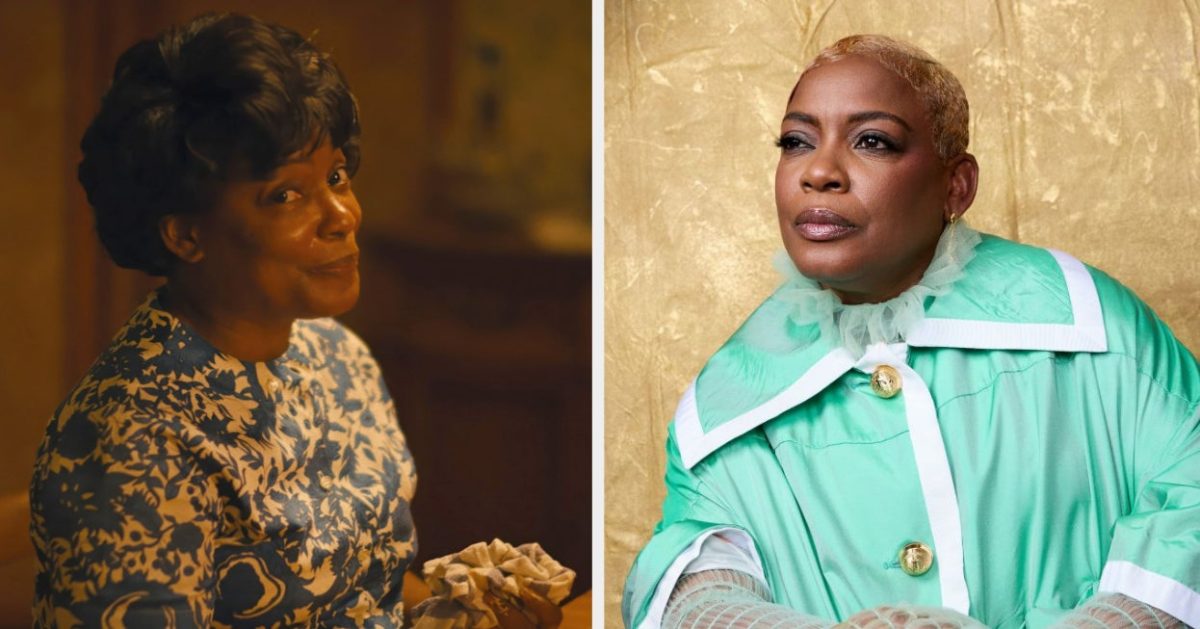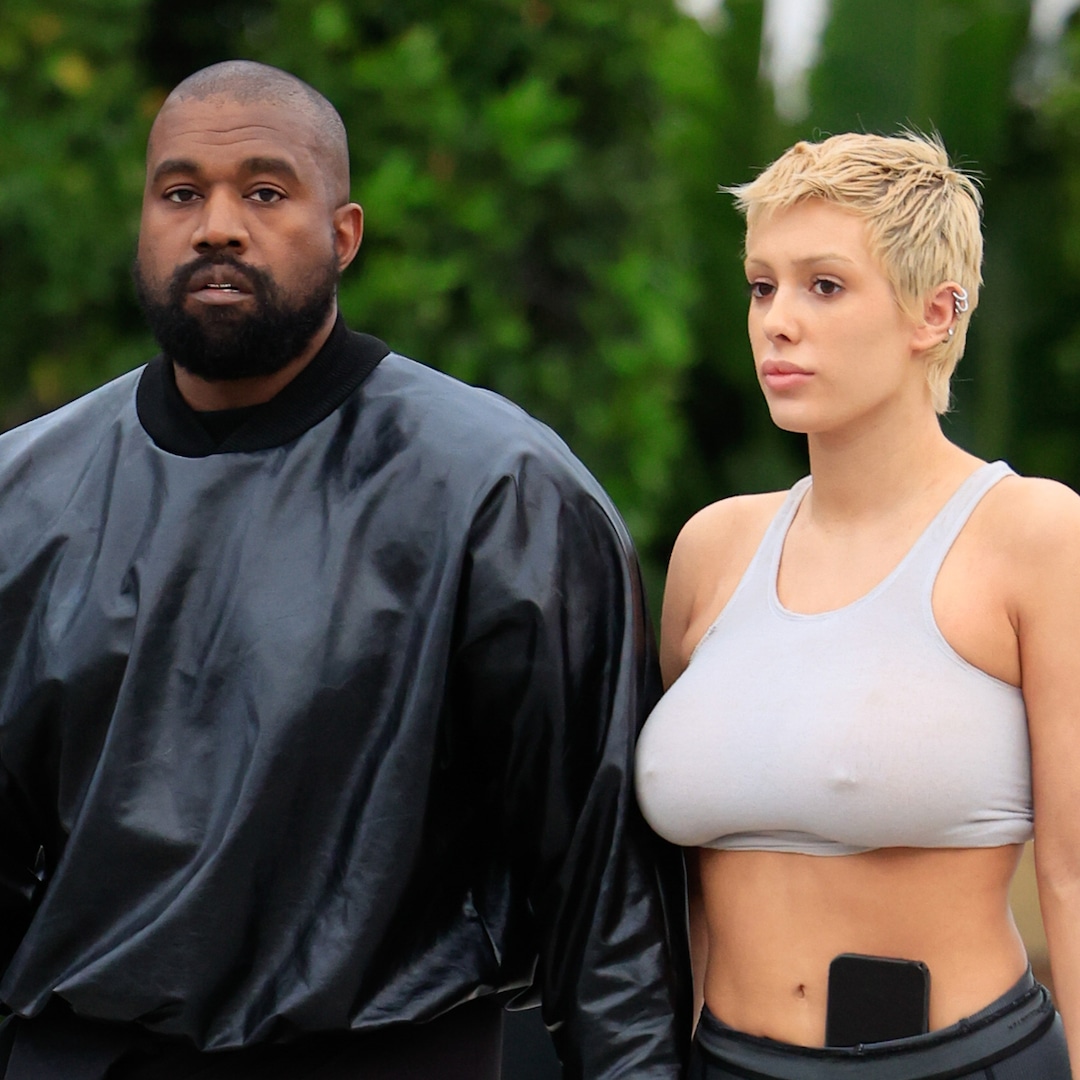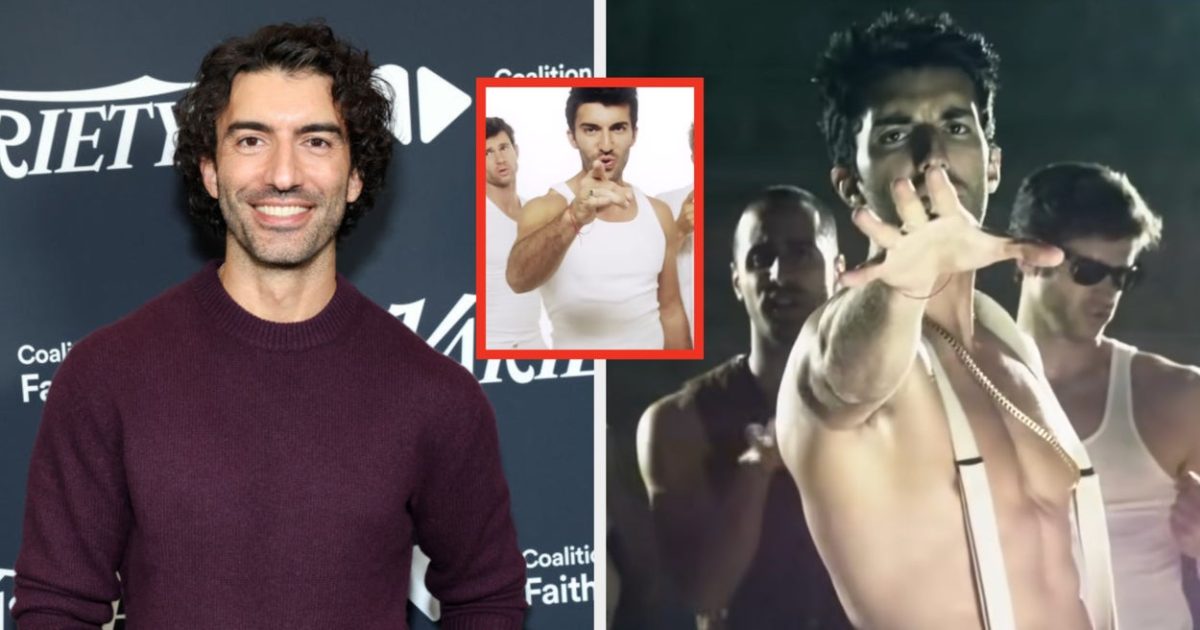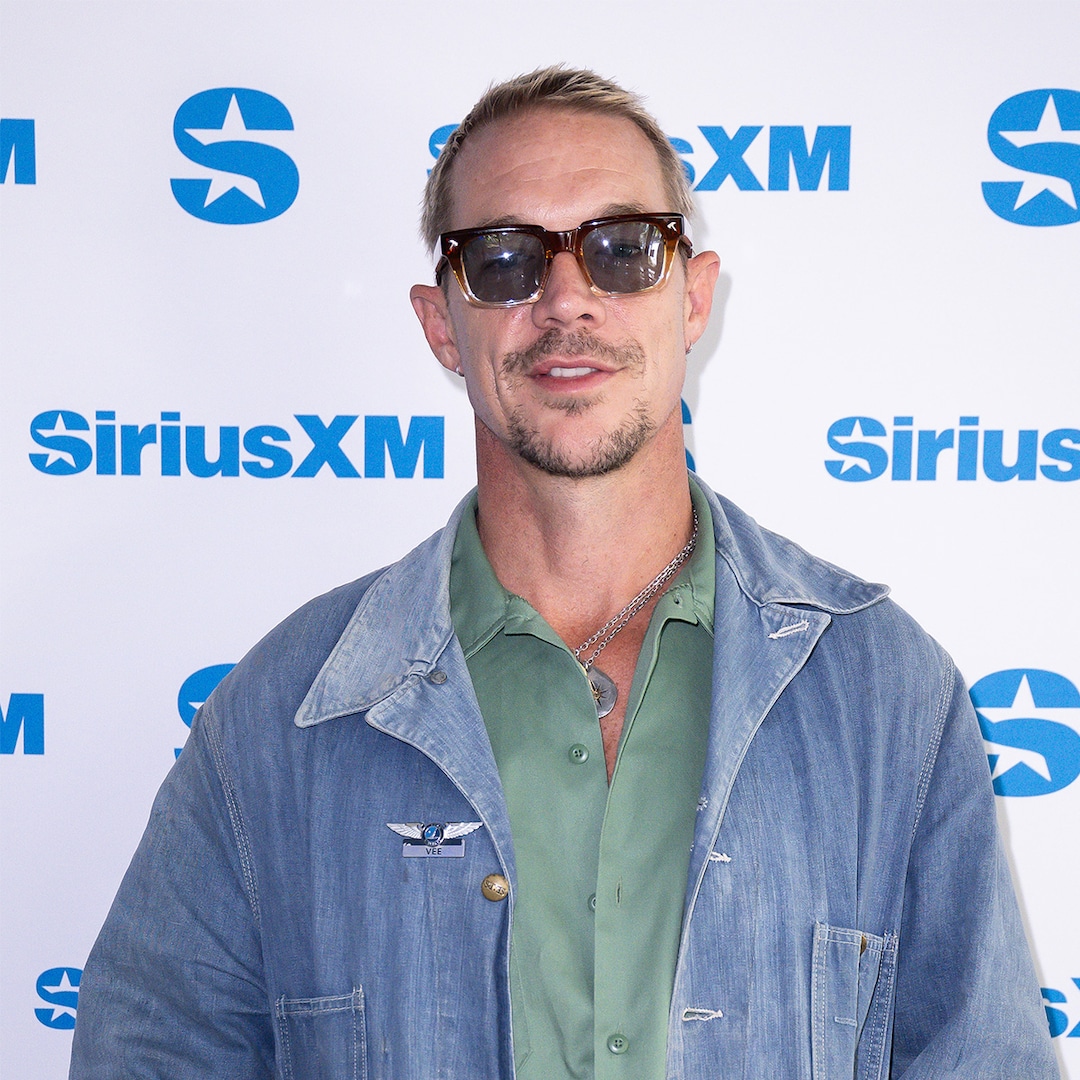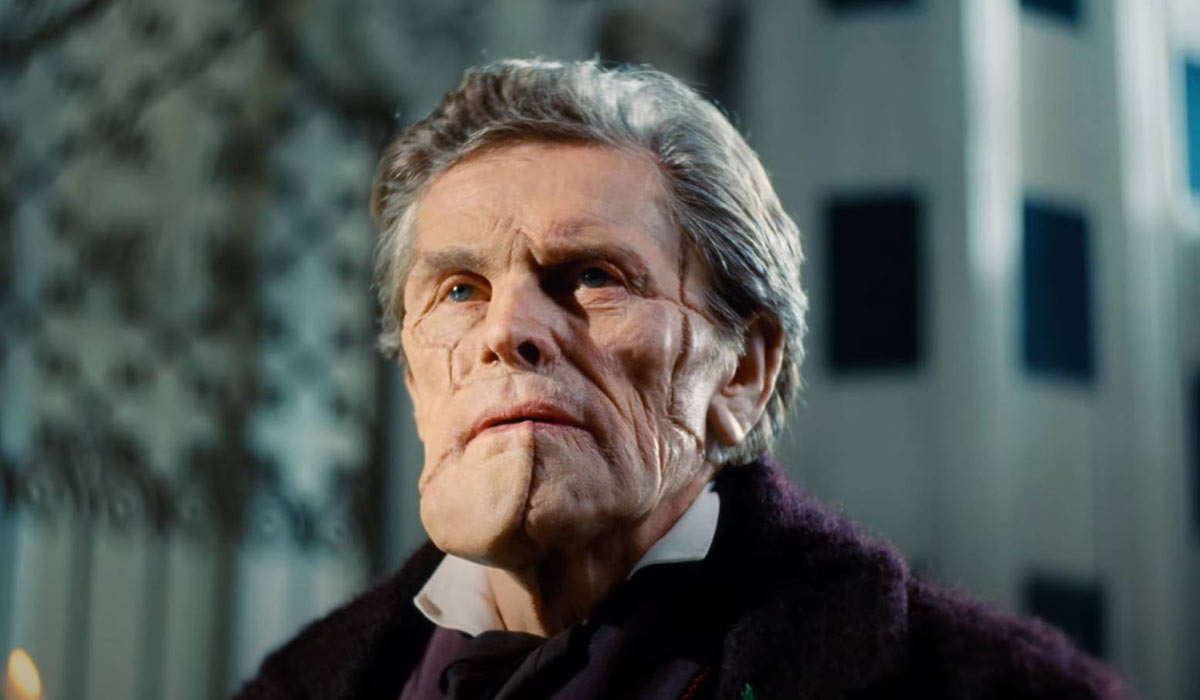
Willem Dafoe On The ‘Quite Amazing’ Yorgos Lanthimos And How Bella Symbolizes Hope in Poor Things
Jan 1, 2024
We’ve been lucky to interview Willem Dafoe several times over the years. The 68-year-old actor, whose resume should put him on the shortlist for an honorary Oscar at this point, has always been, at worst, politely pleasant, but he’s never suffered fools. It was enlightening then, when speaking last month, to find him beaming while discussing his role in “Poor Things.” Dafoe knows when he’s in a special movie and Yorgos Lanthimos’ latest creation is just that.
READ MORE: Emma Stone & Yorgos Lanthimos Are Ready For You To Experience The Fantastical World Of ‘Poor Things’ [Interview]
“Poor Things” finds Dafoe portraying Dr. Godwin Baxter, a not-as-mad scientist as you’d think in a fantastical version of the late 19th century. He’s helped resurrect a woman re-named Bella Baxter (Emma Stone), who looks at society through an increasingly independent and child-like lens. Dafoe’s character has been experimented on throughout his life and wears those gruesome scars on his face. While Dafoe worked with the Oscar-shortlisted makeup team on the design for the doctor’s face, he says it wasn’t something that was foremost in his portrayal.
“It’s funny, people sometimes in interviews talk about your face. Guess what? I don’t think about my face. My face does what it wants to,” Dafoe says. “It’s like, ‘Really? Who cares about my face? I feel, and my face does a thing by itself.’ We are not absolutely the doer. So, many things in our body just get expressed. The things that we do control, to some degree, we control our thoughts, and to some degree, we control our heart. But beyond that, if you have some sense of those and you can direct those, then those things get expressed through things that we don’t really necessarily control.”
During our interview, Dafoe discusses his appreciation for working with Lanthimos, his personal connection to the material (one reason he said “yes”), keeping a little bit of that “mad scientist” in his character, his reaction to the Christmas 2024 release date for his next film, Robert Eggers’ “Nosferatu” and much more.
____
The Playlist: How did “Poor Things” come into your life?
Willem Dafoe: It was real simple. Emma and Yorgos called me. Someone said, “Yorgos and Emma wants to talk to you.” O.K.. I pick up the phone and they lay it out for me. They say, “We want you to play this character.” It’s very direct. I was a fan of both of them, so it was really easy. The way they described the character, I was interested in it. I tell this, I guess you’d say anecdotally, but I was in my office, and behind me was a huge painting of my father, a portrait of my father, and to the side was a big photo of Marina Abramovic, the performance artist, doing an autopsy on a body of a woman. There were elements there because my father was a surgeon also, so there are elements there. They’re asking me to be a doctor, this Victorian doctor reanimating this woman. There were a lot of things floating around where I thought, “Yeah, this is for me. This is for me and with an actress that I really love and with a director that I really love.” It’s like that.
How can you say no? When you actually got the script, what surprised you the most about it?
I don’t recall. I’d be making it up. But of course, the language is very beautiful. It’s elevated. Tony McNamara is really good at language I think, particularly some of the stuff with Wedderburn [Mark Ruffalo] and Bella. The writing is fabulous. But also, some of my dialogue. I respond to the dialogue. I sort of knew what the events were. You don’t really know the relationships well until you engage. Of course, that’s the most beautiful thing because somewhere it’s kind of a baseline to things. It’s not the melody, but the relationship between Godwin and Bella is very beautiful to me. It shifts and it’s not contrived or showy. It’s very subtle and complicated as it’s written. I love that because it calls into question many things just as Bella’s journey calls into question certain social things that we accept without thinking about them, social conventions that oppress us, oppress us, our identity, our sexuality, our sense of freedom. Their relationship calls into question all kinds of questions of family, origin, nurturing, sexuality, many things. I find it really rich. As funny and colorful and exotic as it is, I think if you come to the movie, the movie gives you a lot.
It does give you a lot. It is funny, and it is almost grounded in its own way. All of Yorgos’ films have such a specific tone, and you have worked with some of the world’s greatest directors. How did you know on set that this was working? Or were you just putting your faith in Yorgos?
Pretty much you put your faith in it and you don’t care because you’re so engaged. No, I do care. I want the movie to go well, I want everybody to love it. That’s there, but you’re not thinking about that. You’re too busy engaged in what you’re doing, and the world is so complete. How do you know? You don’t, but the world is telling you because a lot of people have come together under Yorgos. He’s involved on all levels. He’s quite amazing. That world tells you what we’re making, and it sucks you in and you’re there, and it’s a pleasure to be there. You don’t really ask yourself quite, “Is this working or not?” At least I don’t. That’s maybe why I’m not a director. Sometimes, yeah, you fret over whether you did something well or not, but not so much. Not so much when you’re truly engaged. Because when you’re engaged, you’re too busy enjoying and you’re too busy exploring and you’re too busy trying to perform the actions and meet the people and be there for them and have them be there for you.
I think when audiences first meet your character they think, “Oh, this is a mad scientist a little bit. What is he doing?” As the film goes on, he’s turns out to be much, much more than that. But did you feel it was important to keep a little bit of that mad scientist in him?
I didn’t have to keep it, he wears it on his face. The second you see him, you think, “Yikes, this is some kind of monster.” But you learn very quickly that he’s also aware of that, and it’s an element of pain for him. He talks about how he can’t really go out because he frightens children and people ridicule them. He even tried to grow a beard, but he would just look like…I think he says something about a dog. This is a guy that’s isolated. He’s been put apart from society. His way to deal with that loneliness without alienation is to dedicate himself to science. And then more specifically with this project, I think it’s a way to give himself hope. It’s family, it’s creation. It’s the possibility of something new. Quite literally, he’s giving this woman a second chance at life.
In terms of his appearance, did you have any requests in terms of the makeup or look for him?
They were pretty far along. Yorgos, of course, took pictures of me, and then they tried various things. The makeup designer tried different lines, they studied war wounds, things appropriate to the age. They wanted it to look functional, but not be specific, not like a trepanning scar or something like that. It had to be a little abstract, but it really had to represent that this guy had been worked on. This guy had been a guinea pig. They showed me pictures and they’d asked me what I thought, and I’d give little notes. But yeah, I gave feedback, but it was really Yorgos who was driving because he had a vision of how it should look. Nadia Stacey, the designer, really wanted to make sure, of course, that yes, it’s important to have the scars and have them be strong but also to be able to have it not be so inflexible that you wouldn’t see the [performance].
I was going to ask you about that. Did you feel hindered at all by it?
No. It’s funny, people sometimes in interviews talk about your face. Guess what? I don’t think about my face. My face does what it wants to. It’s like, “Really? Who cares about my face? I feel, and my face does a thing by itself.” We are not absolutely the doer. So, many things in our body just get expressed. The things that we do control, to some degree, we control our thoughts, and to some degree, we control our heart. But beyond that, if you have some sense of those and you can direct those, then those things get expressed through things that we don’t really necessarily control.
Listen, you are an acclaimed actor. You have done so many films, so many different genres. Was it hard on set to not smile or laugh at some of the things, especially at the beginning, that Emma was doing as Bella?
We laughed, we smiled. Some of it’s in the movie. It was a very fun and pleasant set. I can really say that. Good people. For example, the first AD, I used to love. She was great, Hayley [Williams]. Rather than calling, “Action,” she’d say, “Off you go.”
I love that.
Yeah, I did too. Very gentle, very playful, very, we’re there to be.
Is that Yorgos’ demeanor on set? Because you recently made another movie with him and Emma, “Kind of Kindness.”
They’re very different movies and I think even the approach is slightly different. But he’s quite concentrated, he’s quite playful, he’s gentle. He really is gentle. You see that movie and you think, “Wow, what an accomplishment. It’s so complicated, so detailed.” You imagine he’s some monster that probably kicks ass to make everybody fall in line, to follow the designs, and get it together. He doesn’t suffer fools mind you, and he’s very serious about what he does, but the manner is always quite gentle and quite positive because…I can’t answer for him, but I’m guessing that he believes that’s the most fruitful environment. You don’t motivate people by putting pressure on them. You motivate them by encouraging them to play and having them feel free.
You just reunited with Robert Eggers on “Nosferatu.” People are super excited about it but I don’t think many people thought it would be a Christmas day release. What was your reaction to that?
I thought, “Wow, that’s a little far away.” To my fault, I always have ants in my pants. So, when you do something, I want it to get out there. That seems like a long wait, but I thought it was a good sign. It shows confidence, I think, because that kind of placement, that’s a serious time to drop a movie. The studio must really feel strongly about it. So, I thought that was a good sign. Given that, I can wait, I can wait.
“Poor Things” is now in limited release
Publisher: Source link
Aunjanue Ellis-Taylor Talks Black Trauma, Nickel Boys
That's beautiful and so refreshing to hear. I’ve seen discourse online with sentiments of “Black films always have to have some type of trauma. Why can’t our characters just be happy?” What are your thoughts on that line of thinking?…
Jan 3, 2025
Kanye West Shares Rare Photo With Wife Bianca Censori
Kanye West and Bianca Censori are looking stronger than ever. The "Heartless" singer shared several rare photos of the pair to his Instagram Story Jan. 2, giving fans a glimpse into their private life. In the photos, Kanye, 47, can be seen snapping pics in…
Jan 3, 2025
"You Can Tell Everything About A Man By The Way He Proposes": If You Never Saw Justin Baldoni's 27-Minute Proposal Video, Here's Why It Is Now Being Called The "Red" Flag Everyone Missed
The video is recirculating with millions of views and new opinions.View Entire Post › Disclaimer: This story is auto-aggregated by a computer program and has not been created or edited by filmibee.Publisher: Source link
Jan 2, 2025
Diplo Admits He’s “Tripping” on LSD During CNN New Year’s Eve Show
Diplo ended 2024 on a high—literally. Indeed, the DJ admitted to Andy Cohen and Anderson Cooper that he was tripping into the new year. “I’m so curious,” Andy told Diplo on CNN’s New Year’s Eve Live with Andy Cohen & Anderson…
Jan 2, 2025


